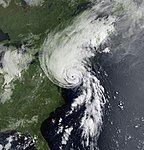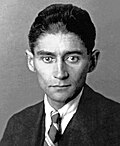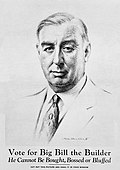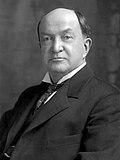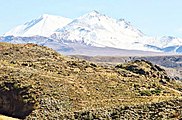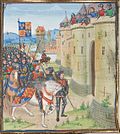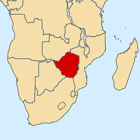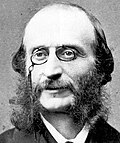Wikipedia:Today's featured article/July 2019
| << | Today's featured articles for July 2019 | >> | ||||
|---|---|---|---|---|---|---|
| Su | Mo | Tu | We | Th | Fr | Sa |
| 1 | 2 | 3 | 4 | 5 | 6 | |
| 7 | 8 | 9 | 10 | 11 | 12 | 13 |
| 14 | 15 | 16 | 17 | 18 | 19 | 20 |
| 21 | 22 | 23 | 24 | 25 | 26 | 27 |
| 28 | 29 | 30 | 31 | |||
July 1
British National (Overseas) is a class of British nationality that was granted by voluntary registration to British Dependent Territories citizens who were Hong Kong residents prior to the transfer of sovereignty to China on 1 July 1997. Individuals with this nationality are British nationals and Commonwealth citizens, but not British citizens. They are subject to immigration controls when entering the United Kingdom and do not have the automatic right of abode there or in Hong Kong, but all would have had permanent resident status in Hong Kong when they acquired this status. This nationality gives its holders favoured status when resident in the United Kingdom and confers eligibility to vote, obtain citizenship under a simplified process, and serve in public office or reserved government positions. About 169,000 individuals currently hold active British passports with this status and may request consular protection when travelling abroad, except in Hong Kong, mainland China, and Macau. (Full article...)
July 2
The 1991 Atlantic hurricane season was the first season since 1984 in which no hurricanes developed from tropical waves, which are the source for most North Atlantic tropical cyclones. The most significant storm of the season was Hurricane Bob (satellite image shown), which at the time was among the ten costliest United States hurricanes. After brushing the Outer Banks of North Carolina and Long Island in New York, the hurricane made landfall on Rhode Island. It caused $1.5 billion in damage, mostly in Massachusetts, and 17 fatalities. The strongest hurricane of the season was Claudette, with reported peak winds of 135 mph (215 km/h) near Bermuda. Hurricane Grace, the final named storm of the season, contributed to the development of a powerful nor'easter known as the Perfect Storm that caused $200 million in damage and 13 deaths from Puerto Rico to Canada. The nor'easter later transitioned into a hurricane over the Gulf Stream, finally dissipating over Nova Scotia on November 2. (Full article...)
Part of the 1991 Atlantic hurricane season featured topic.
July 3
Franz Kafka (3 July 1883 – 3 June 1924) was a German-speaking Bohemian Jewish novelist and short-story writer, widely regarded as one of the major figures of 20th-century literature. His work, which fuses elements of realism and the fantastic, typically features isolated protagonists facing what are now called "Kafkaesque" circumstances: bizarre or surrealistic predicaments complicated by incomprehensible bureaucracy. He explores themes of alienation, existential anxiety, guilt, and absurdity. His best-known works include The Metamorphosis, The Trial, and The Castle. Few of Kafka's works were published during his lifetime, and those that were received little public attention. In his will, he instructed his friend Max Brod to destroy his unfinished works, including three of his novels, but Brod ignored these instructions. Kafka's work has influenced a vast range of writers, critics, artists, and philosophers during the 20th and 21st centuries. (Full article...)
July 4
In the 1927 Chicago mayoral election, Republican candidate William Hale Thompson (campaign poster shown) defeated Democratic incumbent William Emmett Dever. Dever had enforced Prohibition despite his opposition to it, which led to rising violence in the city. Thompson, who had been mayor from 1915 to 1923, was openly backed by the mobster Al Capone. He promised to end the enforcement of Prohibition, bitterly attacked his opponents throughout the campaign, and claimed that the United Kingdom was conspiring to take back control of the United States. Dever's supporters attempted to push back against Thompson's rhetoric and claims; they insisted that Dever had the attitude and policies appropriate for the city. Thompson, the last non-Democrat to win a Chicago mayoral election, damaged Chicago's reputation across the United States, and historians rank him among the most unethical mayors in American history. (Full article...)
July 5
Eve Russell is a fictional character on the American soap opera Passions, which aired on NBC from 1999 to 2007 and on DirecTV in 2007–08. Created by the soap's head writer, James E. Reilly, Eve was played by Tracey Ross for the series' entire run. In 2003, actresses Amanda Maiden and Kimberly Kevon Williams played the character in flashbacks to her childhood and her time as a nightclub singer. Ross was initially hesitant to audition for the role following her negative experience on Ryan's Hope, but was attracted to the show after learning about its supernatural and fantasy elements. Her casting was part of NBC's attempt to include a racially diverse ensemble on daytime television. She based her performance on Joanne Woodward's role in the 1957 film The Three Faces of Eve and Catherine Halsey from Ayn Rand's 1943 novel, The Fountainhead. Eve, part of Passions' Russell family, is introduced as a perfect wife and mother, but her desperation eventually leads to the breakup of her marriage and family. Ross received eight nominations for the NAACP Image Award for Outstanding Actress in a Daytime Drama Series, winning at the 38th NAACP Image Awards. (Full article...)
Part of the Russell family (Passions) featured topic.
July 6
The yellow-tailed black cockatoo (Calyptorhynchus funereus) is a large cockatoo native to the south-east of Australia. It has a short crest on its head, its plumage is mostly brownish-black, and it has yellow cheek patches and a yellow tail band. The male has a black beak and pink eye-rings and the female has a bone-coloured beak and grey eye-rings. The cockatoos flap deeply and slowly in flight, and their loud wailing calls carry for long distances. They are found in forests from eastern Queensland to southeastern South Australia. Two subspecies are recognised, although Tasmanian and southern mainland populations may be a third. The cockatoos feed on wood-boring grubs and seeds. They nest in hollows in large trees, and although they remain common throughout much of their range, habitat fragmentation and loss of suitable trees has caused local population declines. In some urban areas the cockatoos have adapted to humans. This species is listed by CITES, an international protection agreement. (Full article...)
July 7
The 1999 FIFA Women's World Cup was the third edition of the world championship for national teams in women's association football. Hosted by the United States, it took place from 19 June to 10 July 1999 at eight venues across the country. The 1999 edition was the first to field sixteen teams and an all-female roster of referees and match officials. It was played primarily in large American football venues, with an average attendance of 37,319 spectators per match and total attendance of 1.194 million, a record that stood until 2015. The final, played at the Rose Bowl in Pasadena, California, was attended by 90,185 people, setting an international record for spectators at a women's sporting event. The United States won the tournament by defeating China in a penalty shootout after a scoreless draw. The tournament increased interest in women's soccer in the United States, and led to the establishment of a professional league. (Full article...)
July 8
James Bennett McCreary (July 8, 1838 – October 8, 1918) was an American politician from Kentucky who served in both houses of Congress and twice as the state's governor. During the American Civil War, he fought under Confederate Brigadier General John Hunt Morgan. In 1869, he was elected to the Kentucky House of Representatives where he served until 1875; he was twice chosen Speaker of the House. In 1875, the Democrats chose McCreary to run for governor, and he defeated Republican John Marshall Harlan. In 1884, McCreary was elected to the first of six consecutive terms in the U.S. House of Representatives. After two failed bids for election to the Senate, the legislature elected him in 1902, but he failed to gain renomination. In 1909, McCreary gained a second term as governor, defeating Edward C. O'Rear in the general election; he died in 1918. McCreary County, named in his honor, was formed during his second term. (Full article...)
July 9
Vardar was the eventual name of a Sava-class river monitor, originally built for the Austro-Hungarian Navy as SMS Bosna, that went into service on 9 July 1915. During World War I she fought the Serbian Army, the Romanian Navy and Army, and the French Army. After briefly serving with the Hungarian People's Republic at the end of the war, she was transferred to the newly created Kingdom of Serbs, Croats and Slovenes (later Yugoslavia), and renamed Vardar. She remained in service throughout the interwar period. During the first few days of the German-led Axis invasion of Yugoslavia in April 1941, she laid mines in the Danube near the Romanian border as the flagship of the 1st Monitor Division. She fought off several attacks by the Luftwaffe, but was forced to withdraw to Belgrade. Due to high river levels and low bridges, navigation became difficult, and she was scuttled on 11 April by her crew, who were later killed or captured. (Full article...)
July 10
Humphrey Stafford, 1st Duke of Buckingham (1402 – 10 July 1460) was an English nobleman and a military commander who fought for the Lancastrian King Henry VI during the Wars of the Roses, where he was killed at the Battle of Northampton. Through his mother he had royal blood as a great-grandson of King Edward III, and from his father, he inherited the earldom of Stafford. He joined the English campaign in France with King Henry V in 1420. Following the king's death two years later, he became a councillor for the nine-month-old King Henry VI. Stafford acted as a peacemaker during the 1430s, when Humphrey, Duke of Gloucester vied with Cardinal Beaufort for political supremacy. He took part in the eventual arrest of Gloucester in 1447. He was the King's bodyguard and chief negotiator during Jack Cade's Rebellion of 1450. In 1455 he fought for the King in the first battle of the Wars of the Roses, at St Albans, where they were both captured by the Yorkists. He spent the last years of his life attempting to mediate between the Yorkist and Lancastrian factions. (Full article...)
July 11
Istiodactylus was a pterosaur that lived during the Early Cretaceous. The first fossil of the genus was discovered on the Isle of Wight in England. More specimens were later found, including a species from China, I. sinensis, which possibly belongs to a different genus. Istiodactylus (from Greek for "sail finger") was a large pterosaur; estimates of its wingspan range from 4.3 to 5 metres (14 to 16 ft) long. Its skull was about 45 centimetres (18 in) long, and was relatively short and broad for a pterosaur. The front of the snout was low and blunt, and bore a semicircle of 48 interlocked teeth. It had very large forelimbs, with a wing-membrane distended by a long wing-finger, but the hindlimbs were very short. It was a scavenger that may have used its distinctive teeth to sever morsels from large carcasses. The wings may have been adapted for soaring, which would have helped it find carcasses. Istiodactylus is known from the Wessex Formation and the younger Vectis Formation. (Full article...)
July 12
Manchester Cenotaph is a First World War memorial, with additions for later conflicts, designed by Edwin Lutyens for St Peter's Square in Manchester, England. Manchester was late in commissioning a war memorial compared to most British towns and cities, convening a war memorial committee in 1922. Lutyens' design is a variation of the one for his cenotaph in London. The memorial consists of a central cenotaph and a Stone of Remembrance flanked by twin obelisks, all features characteristic of Lutyens' works. The cenotaph is topped by an effigy of a fallen soldier and decorated with relief carvings of the imperial crown, Manchester's coat of arms and inscriptions commemorating the dead. The memorial was unveiled on 12 July 1924 by the Earl of Derby, assisted by a local resident whose three sons had died in the war. In 2014, Manchester City Council dismantled the memorial and reconstructed it at the northwest corner of St Peter's Square next to Manchester Town Hall. (Full article...)
July 13
Stan Coveleski (July 13, 1889 – March 20, 1984) was an American Major League Baseball pitcher. In 450 career games from 1912 to 1928, Coveleski posted a win–loss record of 215–142, with 224 complete games, 38 shutouts, and a 2.89 earned run average. He made his major league debut with the Philadelphia Athletics in 1912. He signed with the Cleveland Indians in 1916, playing nine seasons with them and winning three games during the 1920 World Series. He spent three seasons with the Washington Senators and one with the New York Yankees before retiring after the 1928 season. A starting pitcher, Coveleski specialized in throwing the spitball, a pitch where the ball is altered with a foreign substance such as chewing tobacco. It was legal when his career began and outlawed in 1920, but he was one of 17 pitchers permitted to continue throwing the pitch. He was inducted into the Baseball Hall of Fame in 1969. (Full article...)
July 14
Science Fiction Quarterly was an American pulp science fiction magazine, published from 1940 to 1943 and again from 1951 to 1958. Robert A. W. Lowndes edited all but the first two issues. It was launched by publisher Louis Silberkleit during a boom in science fiction magazines, but fell prey in 1943 to slow sales and paper shortages. Silberkleit relaunched it when the market improved, and was able to obtain reprint rights to several books by Ray Cummings and two early science fiction novels. The budget was minuscule, but Lowndes was able to call on his friends in the Futurians, a group of aspiring writers that included Isaac Asimov, James Blish, and Donald Wollheim. Among the better-known stories that ran were "Second Dawn" by Arthur C. Clarke, "The Last Question" by Isaac Asimov, and "Common Time" by James Blish. By 1958, Science Fiction Quarterly was the last surviving science fiction pulp. (Full article...)
July 15
Noronhomys vespuccii, Vespucci's rodent, was a rat from the islands of Fernando de Noronha off northeastern Brazil. Numerous but fragmentary fossil remains of the extinct species, of uncertain but probably Holocene age, were discovered in 1973 and described in 1999. N. vespuccii was larger than the black rat (Rattus rattus), with high-crowned molars and several ridges on the skull that anchored the chewing muscles. A member of the family Cricetidae and subfamily Sigmodontinae, it shared several distinctive characters with the tribe Oryzomyini. Its close relatives, including Holochilus and Lundomys, are adapted to a semiaquatic lifestyle, spending much of their time in the water, but features of the Noronhomys bones suggest that it lost its semiaquatic lifestyle after arrival at its remote island. Italian explorer Amerigo Vespucci may have seen it on a visit to Fernando de Noronha in 1503. (Full article...)
July 16
Tutupaca is a volcano complex in Tacna, the southernmost region of Peru. It is in the Central Volcanic Zone, one of several volcanic belts in the Andes, where the subduction of the Nazca Plate beneath the South American Plate causes volcanic activity. Tutupaca consists of three overlapping volcanoes formed by lava flows and lava domes made out of andesite and dacite, which grew on top of older volcanic rocks. It features geothermal manifestations with fumaroles and hot springs. Its highest peak is usually reported to be 5,815 metres (19,078 ft), and was glaciated in the past. Tutupaca became active about 700,000 years ago. Several volcanoes in Peru have been active in recent times, including Tutupaca; one of these generated a large debris avalanche when it collapsed, probably in 1802, with pyroclastic flows and an eruption that was among the largest in Peru for which there are historical records. (Full article...)
July 17
The Legend of Bhagat Singh is an Indian historical biographical film directed by Rajkumar Santoshi and released in 2002. Singh, who witnessed the Jallianwala Bagh massacre as a child, was a socialist revolutionary of the Hindustan Republic Association who fought for Indian independence. The film features Ajay Devgn (pictured) as Singh, Sushant Singh, D. Santosh and Akhilendra Mishra. The story and dialogue were written by Santoshi and Piyush Mishra, respectively. The film was released to generally positive reviews, with the direction, story, screenplay, technical aspects and performances of Devgn and Sushant receiving the most attention. Produced on a budget of ₹200–250 million (about US$4.15–5.18 million in 2002), the film earned only ₹129.35 million at the box office. It went on to win two National Film Awards – Best Feature Film in Hindi and Best Actor for Devgn – and three Filmfare Awards from eight nominations. (Full article...)
July 18
Central Link is a light rail line serving 16 stations in Seattle and its southern suburbs, in the U.S. state of Washington. Managed by Sound Transit, it travels 20 miles (32 km) between University of Washington and Angle Lake stations. The line connects the university campus, Downtown Seattle, the Rainier Valley, and Sea–Tac Airport. Central Link runs at a maximum frequency of every six minutes during peak periods, and in 2018 carried an average of 72,000 daily passengers on weekdays. Trains have two or three cars that can each carry 194 passengers and accommodate wheelchairs and bicycles. Construction of the light rail system began in 2003 and the first section opened on July 18, 2009, terminating at Westlake and Tukwila International Boulevard stations. The line was extended to the airport in December 2009, the university in March 2016, and Angle Lake in September 2016; further extensions are planned between 2021 and 2024. (Full article...)
July 19
Banksia lemanniana, the yellow lantern banksia, is a species of woody shrub of the family Proteaceae native to Western Australia. It generally grows as an open shrub or small tree up to five metres (15 ft) high with stiff serrated leaves, and unusual hanging flower clusters. Flowering occurs over summer, the greenish buds developing into oval flower spikes before turning grey and developing the characteristic large woody follicles. It occurs within and just east of the Fitzgerald River National Park on the southern coast of the state. B. lemanniana is killed by bushfire and regenerates from seed. First described by Swiss botanist Carl Meissner in 1856, it was named in honour of English botanist Charles Morgan Lemann. Unlike many Western Australian banksias, it appears to have some resistance to dieback from the soil-borne water mould Phytophthora cinnamomi, and is one of the easier Western Australian species to grow in cultivation. (Full article...)
July 20
The Siege of Berwick lasted four months in 1333, and resulted in the Scottish-held town of Berwick-upon-Tweed being captured by an English army commanded by King Edward III (r. 1327–1377). The year before, Edward Balliol had seized the Scottish Crown, surreptitiously supported by Edward III. After Balliol was expelled from the kingdom by a popular uprising, Edward III invaded Scotland. An advance force laid siege to the strategically important border town of Berwick in March; Edward III and the main English army joined it in May and pressed the attack. A large Scottish army advanced to relieve the town. After unsuccessfully manoeuvring for position and knowing that Berwick was on the verge of surrender, the Scots felt compelled to attack the English at Halidon Hill. They suffered a crushing defeat and Berwick surrendered the next day, 20 July. Balliol was reinstalled as King of Scotland after ceding a large part of his territory to Edward III and agreeing to do homage for the balance. (Full article...)
July 21
Neil Armstrong (1930–2012) was an astronaut and aeronautical engineer who was the first person to walk on the Moon. He was a United States Naval Aviator who served in the Korean War and later worked as a civilian test pilot for experimental aircraft. Armstrong joined the NASA Astronaut Corps in the second group, selected in 1962; he made his first spaceflight as command pilot of Gemini 8 in March 1966, becoming NASA's first civilian astronaut to fly in space. During this mission with pilot David Scott, he completed the first docking of two spacecraft. In July 1969, Armstrong and Apollo 11 Lunar Module pilot Buzz Aldrin performed the first crewed Moon landing, while Michael Collins remained in lunar orbit in the command module. Stepping onto the lunar surface, Armstrong said: "That's one small step for [a] man, one giant leap for mankind." He was later awarded the Presidential Medal of Freedom, the Congressional Space Medal of Honor and the Congressional Gold Medal. (Full article...)
July 22
William Harper (22 July 1916 – 8 September 2006) was a politician, general contractor and Royal Air Force fighter pilot who served as a Cabinet minister in Rhodesia (or Southern Rhodesia) from 1962 to 1968. He signed Rhodesia's Unilateral Declaration of Independence from Britain in 1965. Born into an Anglo-Indian merchant family in Calcutta, he joined the RAF in 1937. He served as an officer throughout the Second World War and was wounded in the Battle of Britain. He emigrated to Rhodesia on retiring from the air force. Entering politics with the Dominion Party in 1958, he became Minister of Irrigation, Roads and Road Traffic in the Rhodesian Front government in 1962. When the Prime Minister Winston Field resigned in 1964, Harper was a front-runner to succeed him, but lost out to Ian Smith. After leading opposition in the Cabinet to some of Smith's negotiations, he was dismissed. He left for South Africa before majority rule began in Zimbabwe Rhodesia in 1979. (Full article...)
July 23
The Coinage Act of 1965 eliminated silver from the United States dime (ten-cent piece) and quarter dollar, and also reduced the silver content of the half dollar from 90 percent to 40 percent. There had been coin shortages beginning in 1959, and the United States Bureau of the Mint expanded production to try to meet demand. Increased industrial demand for silver drove its price higher; there was widespread hoarding of silver coins. With government stocks of the metal being depleted, President Lyndon B. Johnson recommended that Congress allow silverless dimes and quarters, and debased silver half dollars. Congress passed the bill rapidly and Johnson signed it on July 23, 1965. The new coins began to enter circulation in late 1965, and alleviated the shortages. Precious metal coins vanished from circulation beginning in 1967 as the price of silver rose. The act also banned the production of silver dollars until at least 1970. (Full article...)
July 24
The Office of the Inspector General of the United States Army is the agency tasked with investigating the army. Its stated mission includes "advice and oversight to the army through ... inspection, assistance, investigations, and training". George Washington and members of the Continental Congress requested an inspector general for the Continental Army in 1777, and Thomas Conway was appointed the same year. His successor was Friedrich Wilhelm von Steuben, a Prussian military officer who later served as Washington's chief of staff. The office has been reorganized many times, and has varied in size dramatically. In its early days, the inspectorate was frequently merged with, or proposed to be part of, the Adjutant General's department. It expanded greatly after the Civil War, and had grown to around 2,000 officers by 1993. Leslie C. Smith (pictured) has been the inspector general since February 2018. (Full article...)
July 25
Orpheus in the Underworld (Orphée aux enfers, 1858) is a comic opera with music by Jacques Offenbach (pictured) and words by Hector Crémieux and Ludovic Halévy. It was extensively revised and expanded in 1874 for a run that broke box-office records at the Théâtre de la Gaîté, Paris. In the opera, a lampoon of the legend of Orpheus and Eurydice, Orpheus is a rustic violin teacher who is glad to be rid of his wife when she is abducted by the god of the underworld. The reprehensible conduct of the gods of Olympus was widely seen as a veiled satire of the court and government of Napoleon III, Emperor of the French. Some critics expressed outrage at the librettists' disrespect for classic mythology and the composer's parody of Gluck's opera Orfeo ed Euridice; others praised the piece highly. It was Offenbach's first full-length opera and remains the one that is most often performed. Can-can cabaret acts still use its "Galop infernal", adopted later in the 19th century by the Moulin Rouge and Folies Bergère. (Full article...)
July 26

behind which Neville is buried
Ralph Neville (died 1244) was a medieval clergyman and politician who served as Bishop of Chichester and Lord Chancellor of England. Neville first appears in the historical record in 1207 in the service of King John, and remained in royal service for the rest of his life. By 1213 Neville had custody of the Great Seal of England, although he was not named chancellor, the office responsible for the seal, until 1226. He was rewarded with the bishopric of Chichester in 1222. He was briefly Archbishop-elect of Canterbury and Bishop-elect of Winchester, but both elections were set aside, or quashed, and he held neither office. As keeper of the seal, and later as chancellor, Neville was noted for his impartiality and for overseeing changes in the way the chancery operated. Neville was deprived of the Great Seal in 1238 after quarrelling with King Henry III, but continued to hold the title of chancellor until his death. (Full article...)
July 27
The Kediri campaign took place from August to December 1678 in Kediri (in modern-day East Java, Indonesia) during the Trunajaya rebellion. The forces of the Mataram Sultanate, led by Amangkurat II, and the Dutch East India Company, led by Anthonio Hurdt, moved inland into eastern Java against Trunajaya's forces. After a series of marches beset by logistical difficulties and harassment by Trunajaya's forces, the Javanese–Dutch army crossed the Brantas River on the night of 16–17 November. They marched on Trunajaya's capital and stronghold at Kediri and took it by direct assault on 25 November. Kediri was plundered by the victors, and the Mataram treasury—captured by Trunajaya after his victory at Plered—was completely lost in the looting. Trunajaya himself fled Kediri and continued his greatly weakened rebellion until his capture at the end of 1679. (Full article...)
July 28
The 1989 Tour de France was the 76th edition of one of cycling's Grand Tours. The 3,285 km (2,041 mi) race began in Luxembourg with a prologue time trial on 1 July. It reached French soil during stage 4, ending in Paris on 23 July after 21 stages. Often cited as one of the most competitive runnings of the Tour, the race was decided by only eight seconds in favour of Greg LeMond (pictured), the smallest victory margin to date. Laurent Fignon, who was never separated from LeMond by more than fifty-three seconds throughout the event, finished second overall, ahead of defending champion Pedro Delgado. Fignon performed well during the mountain stages to enter the final-day individual time trial with a 50-second advantage. LeMond utilised aerodynamic triathlon tribars to gain an advantage and managed to win the Tour on the last stage. Sean Kelly won the points classification for a record fourth time, while Gert-Jan Theunisse took the King of the Mountains prize. (Full article...)
July 29
The red-throated loon or red-throated diver (Gavia stellata) is a migratory aquatic bird found in the northern hemisphere. It breeds mainly in Arctic regions, and winters in northern coastal waters. It is the smallest of the loons. In winter, it is a plain bird, greyish above and white below; in the breeding season, it has a distinctive reddish throat patch. Fish form the bulk of its diet, though amphibians, invertebrates, and plant material are also sometimes eaten. A monogamous species, the red-throated loon forms long-term pair bonds. Both members of the pair help to build the nest, incubate typically two eggs and feed the hatched young. The red-throated loon has a large global population and a significant global range, though some populations are declining due to oil spills, habitat degradation, pollution, and entrapment in fishing nets. Natural predators, including various gull species and foxes, will take eggs and young. This species is protected by international treaties. (Full article...)
July 30
The Horncastle boar's head is an Anglo-Saxon ornament, silver and 40 mm (1.6 in) long, that probably was once attached to the crest of a helmet. Dating to the first half of the seventh century, it was discovered in 2002 by a metal detectorist searching in the town of Horncastle, Lincolnshire. It was reported as found treasure and purchased for £15,000 by the City and County Museum, now known as The Collection, in Lincoln. Its elongated head is semi-naturalistic, depicting a crouching quadruped on either side of the skull. Garnets form the boar's eyes, and its eyebrows, skull, mouth, tusks, and snout are gilded. The space underneath the hollow head has three rivets that would have affixed the fragment to a larger object. The fragment probably adorned the crest of a helmet similar to those in use in Northern Europe during the sixth through eleventh centuries. As of 2019 the museum has the fragment on display. (Full article...)
July 31
Henry W. Sawyer (1918–1999) was an American lawyer, civil rights activist, and Democratic politician. Born in Philadelphia, he served in World War II and attended the University of Pennsylvania Law School. After graduating, he joined the law firm of Drinker Biddle & Reath and remained with them for his entire career. Sawyer worked as a corporate lawyer but is best known for his advocacy of civil liberties, especially in First Amendment cases. In Abington School District v. Schempp and Lemon v. Kurtzman, he successfully argued cases before the Supreme Court of the United States (building pictured) that became the basis for all modern Establishment Clause jurisprudence. He pursued civil rights causes in Philadelphia and in the South during the civil rights movement of the 1960s. He also served a four-year term on the Philadelphia City Council, where he worked on civil service reform and the acquisition of public art for the city. (Full article...)


